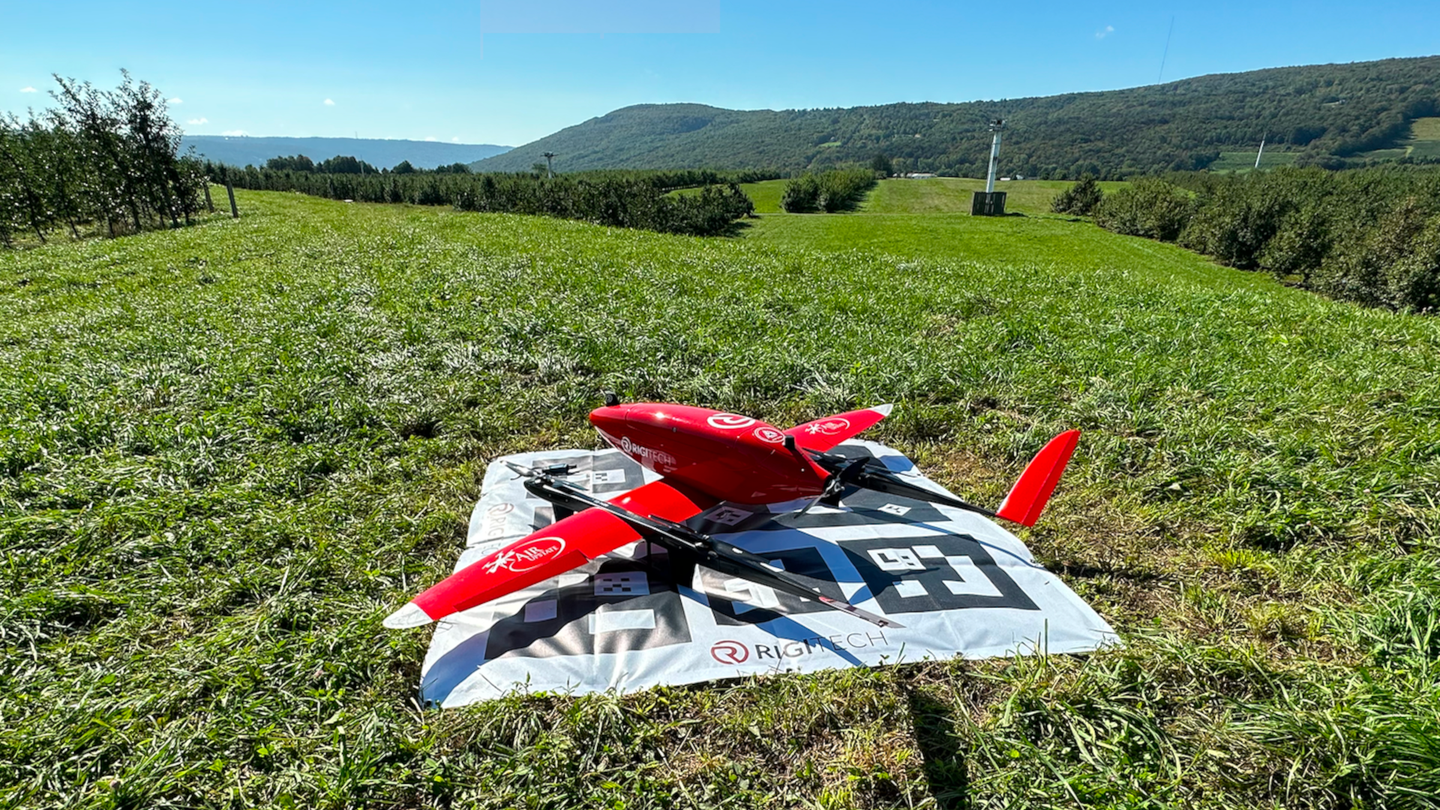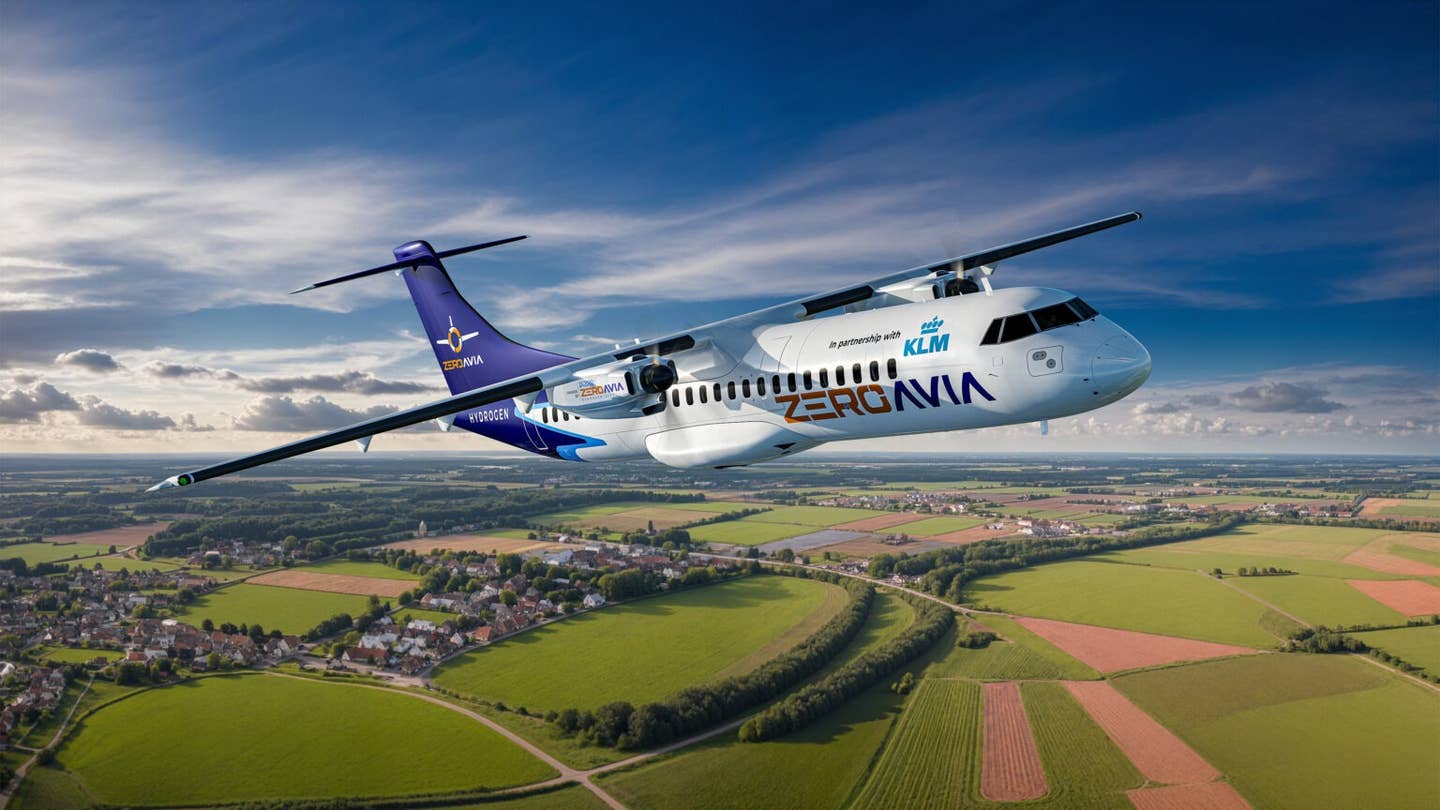Drone Delivery Firm RigiTech Looks to Expand U.S. Operations with FAA Approval
The company has a partnership with U.S.-based Spright, the drone delivery subsidiary of Air Methods, to deploy its Eiger drone worldwide.

The FAA confirmed that RigiTech’s Eiger drone is compliant with the regulator’s Remote ID rule, which took full effect in March. [Courtesy: RigiTech]
Drone delivery manufacturer RigiTech has announced a key update with implications for its aircraft in the U.S.
The company last week announced that the FAA confirmed its Eiger drone to be compliant with the regulator’s Remote ID rule, a key step toward expanding operations in the U.S. to go beyond the visual line of sight (BVLOS) of the operator.
RigiTech’s U.S. customers—which include medical drone delivery operator Spright, a subsidiary of helicopter operator Air Methods—could leverage the approval to commence BVLOS operations with a waiver from the FAA.
“Achieving this approval is a crucial milestone for RigiTech and the drone community at large, propelling us towards more complex and beneficial drone operations,” said David Rovira, co-founder and chief business officer of RigiTech. “We are committed to continuing our work with the FAA and other stakeholders to ensure a safe, secure, and innovative future for drone technology.”
BVLOS flights are considered some of the highest-risk operations in the drone delivery industry due to the lack of human oversight, since they take place where the operator cannot see them. In lieu of a final rule regulating BVLOS operations, the FAA approves them on a case-by-case basis using waivers.
However, many industry stakeholders are pushing for a more reliable system. Doing away with the human oversight requirement would expand—in some cases significantly—the area that drone delivery companies can serve, allowing them to attract more customers.
Remote ID is one of the ways the industry can reduce its reliance on human operators. It is essentially a digital license plate for drones, broadcasting live information such as a unique identification number, location, altitude, and velocity over a 2-3-mile radius. That information can be used by law enforcement, the FAA, or other federal agencies to monitor flights and ground unsafe drones.
The FAA’s Remote ID rule took full effect in March, requiring all agency-registered drones to be flown with broadcast capabilities installed either during or after manufacturing.
Most manufacturers began producing remote ID-compliant drones in September 2022, according to the regulator. But a company can retrofit its aircraft to broadcast remote ID with technology such as a beacon. RigiTech says Eiger is compliant with the FAA’s standard remote ID requirements, meaning the drone is produced with broadcast capabilities already built in.
For a drone, Eiger is quite durable. The aircraft has a range of about 62 sm (54 nm) and payload of 6.6 pounds, capable of flying during daytime or nighttime and in winds as fast as 33 mph (28 knots). A temperature-controlled cargo hold allows it to carry medical and humanitarian payloads such as blood or vaccines.
Working behind the scenes is RigiTech’s RigiCloud software, which enables autonomous and remote Eiger flights—another key tenet of BVLOS operations. RigiCloud provides real-time flight tracking and creates preprogrammed routes in compliance with aviation regulatory authorities across Europe. The software even tracks drone maintenance and operator credentials to help customers avoid run-ins with regulators.
In July, RigiTech conducted successful tests of Eiger’s prototype precision dropping system, flying spare parts to Anholt Offshore Wind Farm 20 sm (17 nm) off the coast of Denmark. The system, an optional add-on to the drone, autonomously releases cargo from a few feet in the air when RigiCloud detects the drone has reached its destination. The tests were monitored remotely from the Danish capital of Copenhagen, 83 sm (72 nm) away.
In October, the State University of New York Upstate Medical University (SUNY Upstate) became the first U.S. company to conduct a domestic flight with Eiger. RigiTech has also received a handful of Eiger orders from Spright, beginning delivery of the first six systems in May.
According to the company, its systems have been approved for and flown BVLOS operations on five continents. Outside the U.S., it has laid the groundwork for initial service or begun flying in its home country of Switzerland, France, Greece, South Korea, and Uruguay. In February, RigiTech added Dutch drone operator Medical Drone Service as a customer to launch healthcare deliveries in the Netherlands.
Like this story? We think you'll also like the Future of FLYING newsletter sent every Thursday afternoon. Sign up now.

Subscribe to Our Newsletter
Get the latest FLYING stories delivered directly to your inbox






